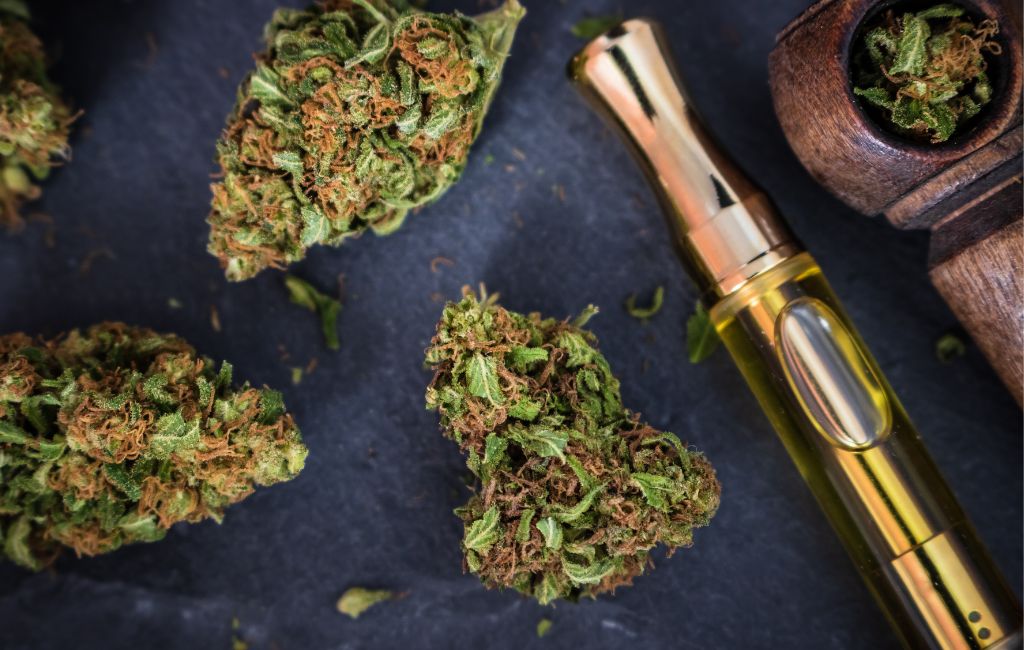THCa Flower Therapeutic Potential for Natural Healing
The exploration of natural remedies has gained momentum in recent years, with many turning to plant-based solutions for health and wellness. Among these, THCa flower has emerged as a promising candidate for natural healing. This article delves into the THCa flower therapeutic potential, examining its benefits, applications, and the science behind its efficacy.
Understanding THCa: The Precursor to THC
THCa, or tetrahydrocannabinolic acid, is a non-psychoactive cannabinoid found in raw cannabis plants. Unlike THC, which is known for its psychoactive effects, THCa does not produce a “high.” This makes it an attractive option for those seeking the therapeutic benefits of cannabis without the mind-altering effects.
The Science Behind THCa
THCa is the acidic precursor to THC. When cannabis is heated through smoking, vaping, or cooking, THCa undergoes decarboxylation, converting into THC. In its raw form, THCa offers a range of potential health benefits without psychoactivity.
Therapeutic Benefits of THCa Flower
Research into THCa is still in its early stages, but preliminary findings suggest several potential therapeutic applications:
- Anti-inflammatory Properties: THCa has shown promise in reducing inflammation, which could benefit conditions like arthritis and inflammatory bowel disease.
- Neuroprotective Effects: Studies indicate that THCa may protect brain cells, offering potential benefits for neurodegenerative diseases such as Alzheimer’s and Parkinson’s.
- Anti-emetic Benefits: THCa may help alleviate nausea and vomiting, making it a potential option for patients undergoing chemotherapy.
- Pain Relief: Some evidence suggests that THCa may help manage pain, providing a natural alternative to traditional pain medications.
Case Studies and Research
Several studies and anecdotal reports highlight the potential of THCa in various therapeutic contexts:
Inflammation and Pain Management
A study published in the “Journal of Pharmacology” explored the anti-inflammatory effects of THCa in animal models. The results indicated a significant reduction in inflammation markers, suggesting potential applications for human inflammatory conditions.
Neuroprotection
Research conducted by the “Neurobiology Institute” examined the neuroprotective properties of THCa. The study found that THCa could reduce oxidative stress and protect neurons from damage, offering hope for those with neurodegenerative disorders.
Patient Testimonials
Many individuals have shared personal stories of relief from chronic pain and inflammation through the use of THCa-rich products. These testimonials, while anecdotal, provide valuable insights into the potential real-world applications of THCa.
How to Use THCa Flower
For those interested in exploring the benefits of THCa, there are several ways to incorporate it into a wellness routine:
- Raw Consumption: Consuming raw cannabis leaves or flowers in smoothies or salads preserves THCa in its natural form.
- Tinctures and Oils: THCa tinctures and oils offer a convenient way to measure and consume precise doses.
- Topicals: THCa-infused creams and balms can be applied directly to the skin for localized relief.
Legal Considerations and Accessibility
The legal status of THCa varies by region, with some areas allowing its use and others imposing restrictions. It’s important for individuals to research local laws and regulations before purchasing or using THCa products.
Conclusion
THCa flower presents a promising avenue for natural healing, offering potential benefits for inflammation, neuroprotection, and pain management. While research is ongoing, the existing evidence and anecdotal reports suggest that THCa could become a valuable tool in the pursuit of wellness. As interest in plant-based therapies continues to grow, THCa stands out as a compelling option for those seeking natural alternatives to traditional medicine.

